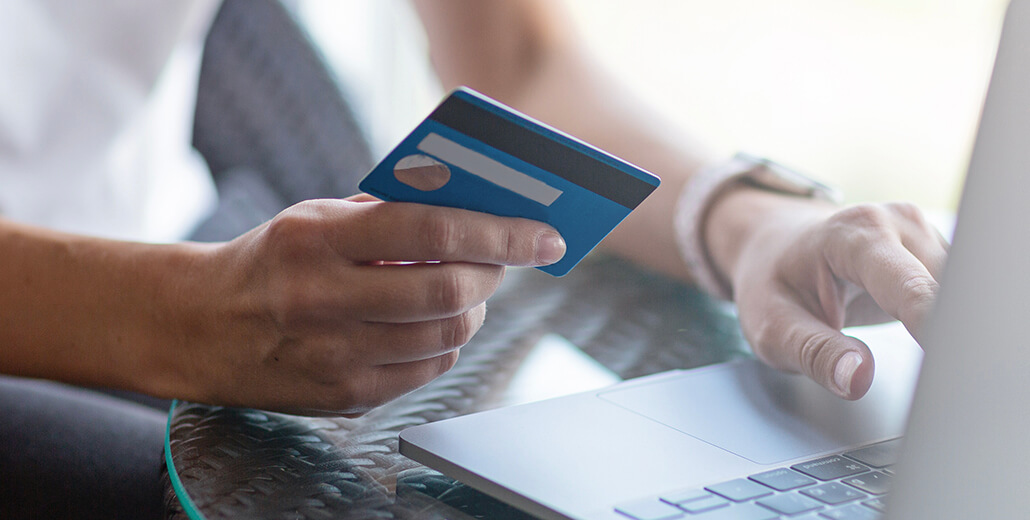An iconic image of the 21st century is a couple leaving their favorite pop-up restaurant and paying for their meal with a tap on their smartphone. Those taps, whether with Apple, Samsung or Google Pay, depend on credit cards, which have largely replaced cash in financial systems throughout the world. In the digital age, that thin rectangle of plastic enables shopping in every corner of the globe and has practically made coins and bills memorabilia from the past. So, what are the advantages of credit cards over money?
-
-
- First of all, security. If your wallet is lost or stolen your cards cannot be spent like cash, and if a thief does make a few charges your bank will compensate you for the loss.
- Credit cards make travel a breeze by avoiding currency exchange and sometimes providing automatic travel insurance.
- They provide a safety net in case you face a short-term budget crunch.
- Depending on the credit card’s terms, each purchase can entitle you to perks or rewards.
- They create a paper trail that makes record-keeping for personal and professional expenses a whole lot easier.
- They build your credit history, which makes you more attractive as a borrower of much larger sums (for a house or car, for example).
- They can do wonders for your credit score, which affects the rate and how much you can borrow when it’s time to purchase that house or car.
-
Credit cards are so pervasive in today’s world you could be forgiven for feeling like you're missing something without one. So, before you embark on obtaining your first credit card or upgrading the ones you have, here are the answers to some frequently asked questions.
How to find the best credit card for you?
With so many options and credit cards to choose from, there is no one-size-fits-all option. It depends on your personal financial strategy and your lifestyle. However, these are some features to consider when tracking down a credit card that will be the best fit for you.
-
-
- If you already have hefty credit card balances, then low- or no-interest balance transfers will give you some breathing space to get your budget back on track.
- Businesspeople will appreciate expense tracking, which can be linked to accounting software with some cards.
- The longest interest-free periods will appeal to those who want to pay the full balance before interest starts to accrue.
- You can maximize savings by getting a card with no annual fee combined with a low interest rate.
- If you travel a lot, cards that maximize your frequent flyer miles, offer user-friendly low-cost currency exchange, travel insurance and/or hotel discounts will appeal.
-
How does a credit card work?
A credit card is a way to get a loan. When you use a credit card, the bank loans you the money for the purchase. At the end of your billing cycle, the bank sends you a statement that includes a list of your transactions for that cycle, the total amount you are now borrowing, the minimum amount you need to repay (usually less than the full amount you owe), the due date for your payment and payment instructions. If you don’t pay the full amount you owe, interest starts to accrue – that will be included on your statement as well.
Credit cards are the most common form of personal loan that is not secured by collateral. With no collateral, the bank issuing the card is taking a risk. It mitigates this risk by using the information on your application and your credit score to evaluate your ability to repay the loan. That is why maintaining a good credit score and history is critical, because it shows the bank and/or credit card company that you have a good track record of borrowing and repaying funds.
How to get a credit card?
Once you have determined the features you want in a card you need to assess which ones will accept you as a borrower. Start by checking your credit score regularly as it will fluctuate according to how much debt you have, whether you make payments on time and other factors. A credit score of 670 to 850 is the sweet spot and gives you the most opportunities. Some banks will issue cards to people with a credit score of 550 to 650. Below 550 there is little chance, and you will need to first rebuild your credit score.
Do not use the shotgun approach and apply for many cards to see which one(s) you’re eligible for. Every credit application affects your credit score, most often negatively. So, apply for only one credit card at a time, and apply for another only if the first application is unsuccessful.
Try banks where you already have a relationship through existing loans or a history of banking. They will look most favorably on your application.
If you don’t want a credit card but still want to pay with plastic, you can obtain a debit card. Most banks will issue a card that works identically to a Visa or Mastercard but draws from funds you have on deposit, rather than giving you a loan.
How many credit cards should I have?
As a general rule, you should not have more than two personal credit cards. One should be reserved for regular, everyday use and the other should only be used for emergencies like unexpected medical bills. There is one exception to the two-credit card rule: If you have regular expenses tied to work, you might consider opening a third credit card. This way, all the purchases your employer needs to reimburse you for are on one card and won’t be confused with personal expenses.
How to apply for a credit card?
Applying for a credit card is usually a straightforward process. Most applications can be requested by mail or found online, or you can speak to a customer support representative, who can take your application by phone. Follow these guidelines:
-
-
- Compare and choose a card using the ideas above.
Wait until you are 21, or 18 with either a parent’s permission or a verifiable source of income. - Have a Social Security number and an annual income of $31,000 or more.
- Have a positive credit history and score of at least 600.
- Particularly if you are self-employed, list all sources of income, pensions, grants, part-time work, family allowances, etc.
- Compare and choose a card using the ideas above.
-
What is the APR for a credit card?
Remember that a credit card is a loan. The card’s annual percentage rate, or APR, is the interest you pay for borrowing money. With credit cards, the interest rate is typically stated as a yearly rate, which is why it’s called the annual percentage rate. On most cards, you can avoid paying interest on purchases if you pay your balance in full each month by the due date.
How is interest on credit cards calculated?
Credit card interest is the fee you are charged when you don’t pay your credit card bill in full each month. To calculate the rate, banks first take the card’s annual percentage rate (APR) and divide it by 365 to get the daily rate. Your balance is multiplied by the daily rate and that amount is added to your bill.
How to calculate the minimum credit card payment?
Some credit card issuers calculate the minimum payment as a percentage of your total statement balance, including interest and fees, usually between 1% and 3%. For example, say your balance is $5,000 and the minimum payment is calculated as 2% of the balance. You would owe a minimum payment of $100.
What is balance transfer on a credit card?
A credit card balance transfer happens when you move the amount you owe (the balance) to another credit card. The new interest rate on the balance you transfer may be a special low rate for a limited time, sometimes 0%. If you can pay off the balance you transfer within that time, you should save money but check to see if there’s a balance transfer fee.
What is a cash advance on a credit card?
A cash advance is a charge to the credit card account that results in you receiving actual cash or a cash equivalent transaction (such as the purchase of gambling chips). For example, you can use your credit card to withdraw cash from an ATM in an amount that is less than or equal to your cash advance limit (usually 1/3 of total credit limit for the card).
Credit cards typically charge a fee for a cash advance transaction. The APR will most often be higher than your normal rate and will begin accruing immediately. Cash advances should be avoided due to their high-interest costs and fees, except when you are in dire need of funds and have no other way to get them.
Before you use your credit card for a cash advance, make sure you understand the total costs, you have a plan to repay the money you withdraw, and you have considered less expensive options first.
Fremont Bank has personal and business credit card options that meet virtually any need and the customer service to match. If you still have questions, give us a call at (800) 359-2265 and we’d be happy to help you find a card that’s right for you.







